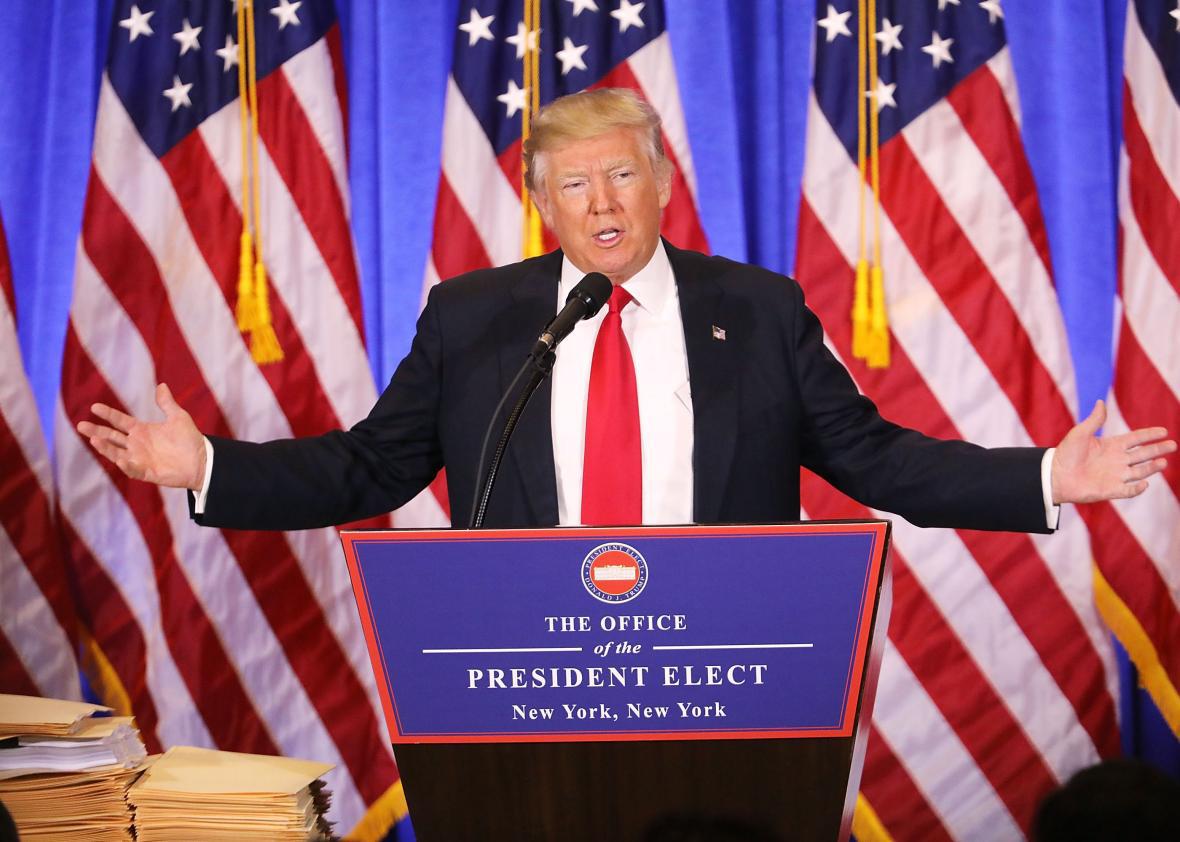President-elect Donald Trump is getting ready to unveil a plan to replace the Affordable Care Act with a clear goal: “Insurance for everybody.” Trump told the Washington Post that his plan will also not involve cuts for Medicare and will target pharmaceutical companies to lower drug prices. “We’re going to have insurance for everybody,” Trump said. “There was a philosophy in some circles that if you can’t pay for it, you don’t get it. That’s not going to happen with us.” There’s no reason to be worried because those who will be covered under the new law “can expect to have great health care” that will be “much less expensive and much better.”
How does the president-elect plan to do all this? He wouldn’t say. Trump gave no details on the plan itself or what it could cost. He also wouldn’t say how he plans to persuade congressional Republicans to get behind his plans, but he did say he would be unveiling the plan—that is “very much formulated to the final strokes”—with House Speaker Paul Ryan and Senate Majority Leader Mitch McConnell, suggesting he’s got support from key GOP leaders. Still, Trump’s words would appear to fly in the face of what many Republicans have been advocating while using the term “universal access” to describe their goals rather than “universal coverage.”
Trump was coy about his plan to convince Congress to pass his plan: “I think we will get approval. I won’t tell you how, but we will get approval.” The president-elect seemed to reference a series of recent Twitter posts that got Republicans to back away from a plan to decimate an ethics office—“You see what’s happened in the House in recent weeks”—as a way to illustrate his powers of persuasion.
Even as Trump suggests he’s in a rush to repeal and replace Obamacare, lawmakers appear increasingly skittish. Although Congress did take the first step last week to dismantle the Affordable Care Act, the harder part of putting together a plan is still to come. The reason for the concern is obvious: Some 20 million people are covered, and many aspects of the law are quite popular. “I’m very concerned on the policy side specifically, that the replacement occur either simultaneously or as close to simultaneously as possible,” Rep. Charlie Dent of Pennsylvania told CNN last week. “If we don’t provide a credible replacement plan, my main concern is that there would not be gaps in coverage for people who are currently subsidized. Also concerned about how the insurance markets might react.”
Republican lawmakers aren’t alone. At least five Republican governors are also pushing their colleagues on the federal level to think carefully about what their decisions could mean for health coverage in their states.
Trump, however, has said he won’t let Congress get in the way of his agenda: “The Congress can’t get cold feet because the people will not let that happen.”
Update at 3 p.m.: It didn’t take long for Trump’s spokesman Sean Spicer to come out to clarify the president-elect’s position on health care, noting that when Trump said everyone would have health insurance it was more figure of speech than a literal promise.
The goal, he said, is “to get insurance for everybody through marketplace solutions, through bringing costs down, through negotiating with pharmaceutical companies, allowing competition over state lines.” Spicer insisted in an interview with NBC that Trump’s plan wouldn’t mean an expansion of government-run health care. But he did say that Trump sees health care as the most important issue and it will be at the top of his to-do list once he takes office.
Just like his boss, Spicer was short on details about what Trump’s plan would entail only saying that “competition is sorely missing.” Trump, he said, “knows how to negotiate great deals, and at this point, he can now use his negotiating skills to benefit the American people and give them a much better health-care system than they have.”
